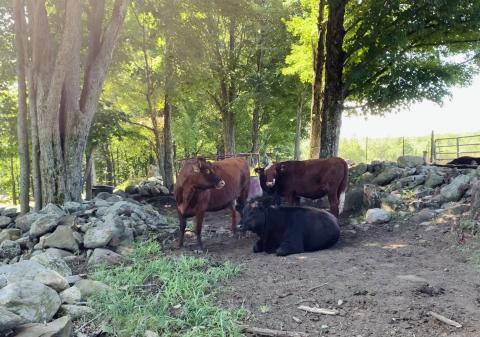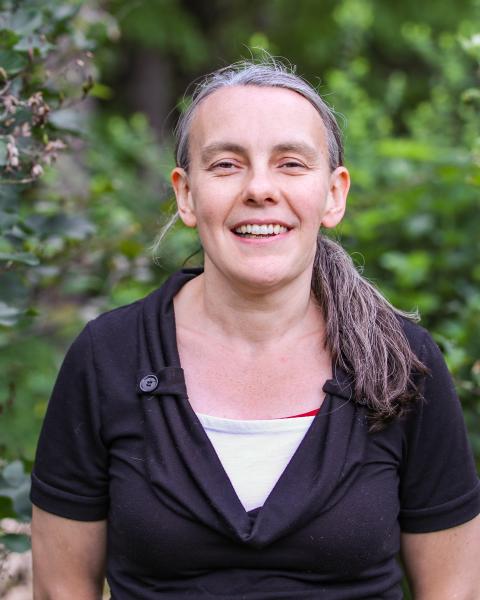Working in the Field-Extension Internship Highlights Sustainable Agriculture in New Hampshire

It’s easy to get caught up in the idea that a model sustainable farm looks like an intensive six-acre market garden, with little to no inputs and mainly producing vegetables. The notion of a sixty-acre grazing rotation comprised of woodlands and meadows is not what first comes to mind. I know I can get caught up in this image, especially since that is how I have shaped my education and my farming experiences.
I am grateful for my experiences interning at Cooperative Extension this summer that exposed me to a broader representation of sustainable agriculture in our state. Through my work with Dr. Anna Wallingford, specifically all the time I spent learning about and researching low-risk insecticides, my views on and understanding of agricultural inputs shifted.
While working with Kelly McAdam and Elaina Enzien on Annie’s Project and the New England Women in Livestock grant, I noted how vital small to medium scale livestock operations are to the local food system and how much they enhance the sustainability of our meals and our global environment.
Something that was highlighted by my experiences this summer is that sustainability isn’t just about how farmers are treating the environment. It is about a farmer’s ability to persist and adapt to uncertain economic and social conditions that underlines a sustainable food system. This season has been an extraordinary strain and test of that system and most farmers in New Hampshire have adapted impressively. While increased participation in the local food system has posed some challenges like access to livestock processors, most farms we interviewed were experiencing sold out community supported agriculture (CSA) shares or meat orders and are ramping up production to meet the demand.
I was impressed and felt so reassured by being exposed to the sense of community surrounding New Hampshire farms. With even more people choosing local products and realizing the value of local food systems, there is a lot of hope to be found in such uncertain times.
I would like to thank all the women farmers who responded to me enthusiastically via social media and hosted us for socially distant farm visits, as well as my wonderful mentors. I am very grateful for all the opportunities you gave me and for all your encouragement. Everyone on the Food and Agriculture team was equally welcoming and I am glad I got to connect with all of you.
